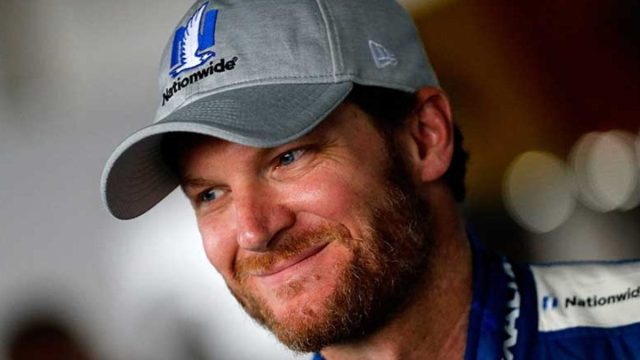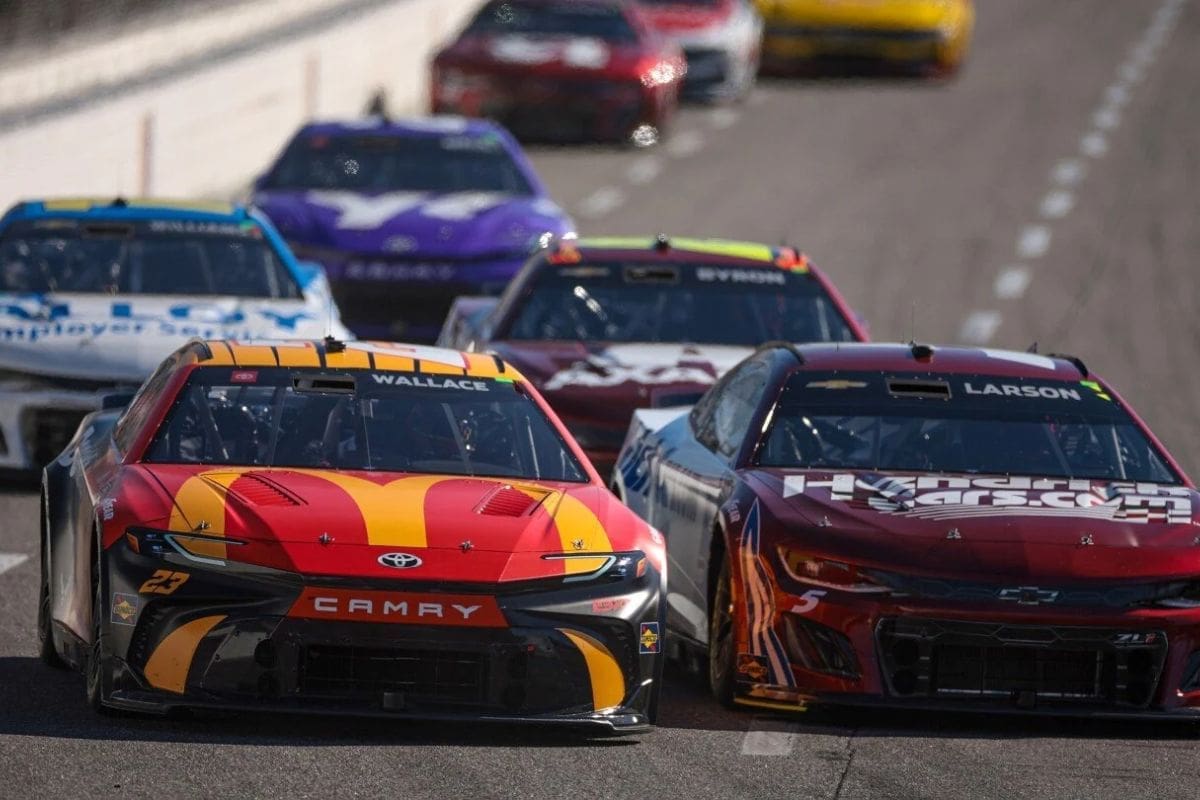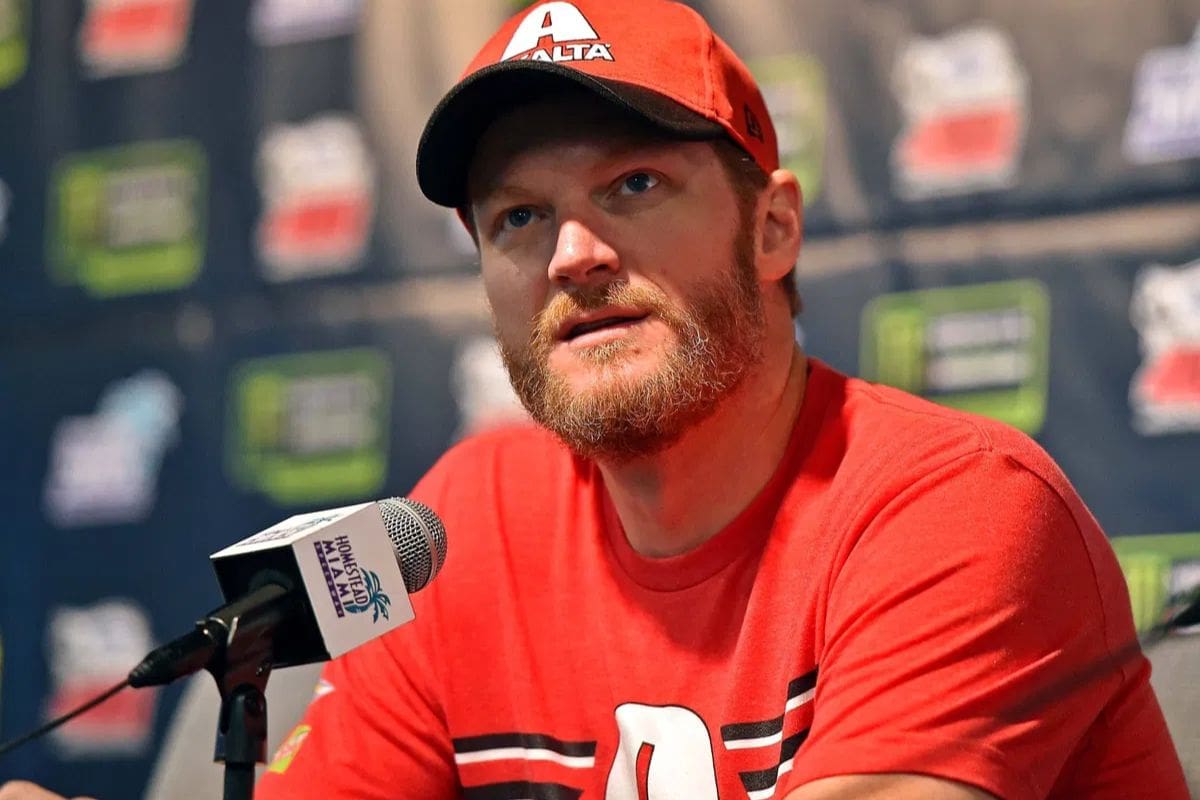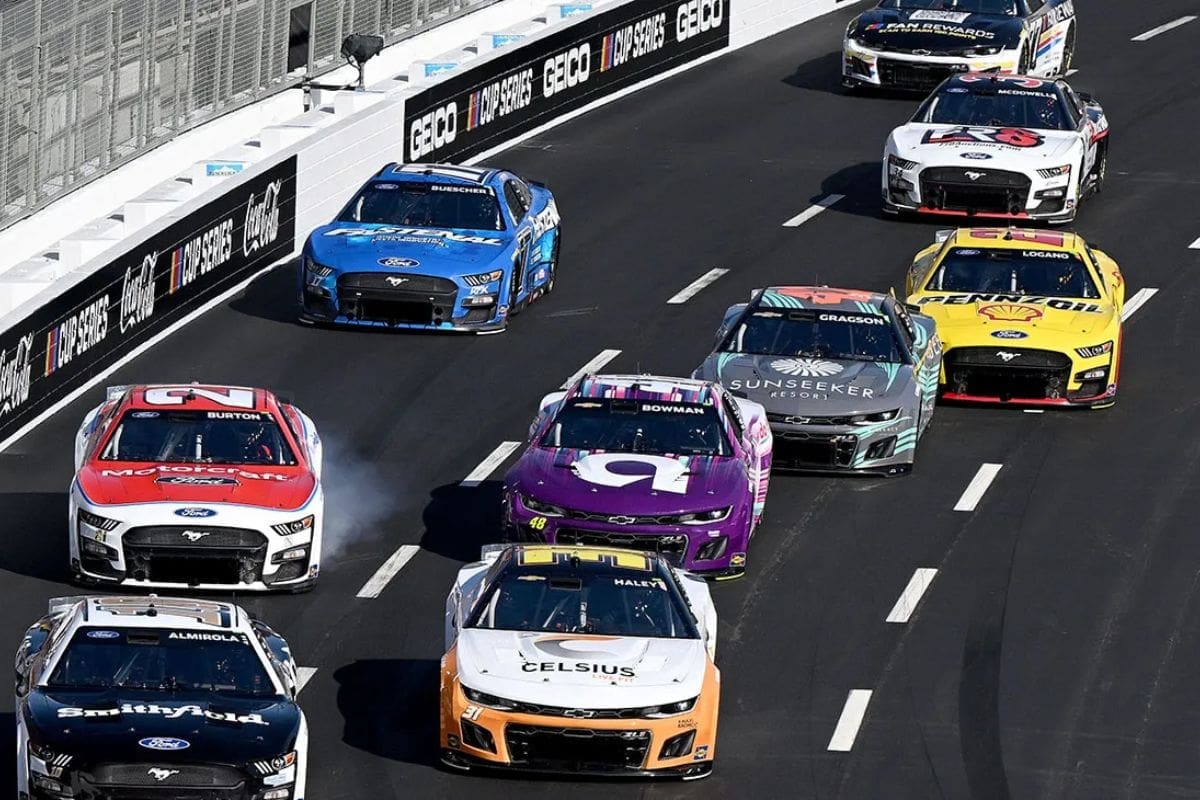Dale Jr. Reacts to 2025 NASCAR Schedule Leak: Dale Earnhardt Jr.‘s response to the recent leak of the 2025 NASCAR schedule emphasizes important concerns regarding the integrity of the sport’s playoff system, particularly with the inclusion of St. Louis as a playoff venue. His disappointment highlights a perceived disconnect between the track’s qualifications and its enhanced status within the postseason framework. This raises critical questions about the selection process and the criteria used to determine playoff tracks, prompting speculation about potential influences behind such decisions. As the discussion unfolds, the implications for NASCAR’s competitive landscape warrant closer examination.
Key Highlights
- Dale Earnhardt Jr. expressed disappointment regarding St. Louis’s inclusion in the 2025 NASCAR playoffs.
- He questioned the merit of the track compared to traditional playoff venues.
- Earnhardt Jr. highlighted concerns over transparency in the selection criteria for playoff tracks.
- His reaction reflects broader skepticism about NASCAR’s evolving playoff format.
- The schedule leak has sparked discussions on track ownership and NASCAR’s future direction.
The Schedule Leak and St. Louis Playoff Inclusion
Recently, an alleged leak of the 2025 NASCAR schedule has sparked considerable discussion among fans and analysts, particularly regarding the inclusion of St. Louis in the playoffs. This development marks a notable shift in NASCAR’s playoff structure, as St. Louis has not traditionally been a central point within the championship landscape. Analysts are scrutinizing the implications of this decision, especially concerning market expansion and fan engagement.
Incorporating St. Louis into the playoff roster indicates NASCAR’s tactical intent to tap into new demographics and fan bases. This city has a rich motorsports history, and by placing a playoff race there, NASCAR may be attempting to rekindle local interest while also enhancing the comprehensive competitive atmosphere of the postseason. The increased stakes associated with playoff races could boost the excitement and intensity, potentially attracting a larger audience.
However, the decision has also drawn scrutiny from seasoned observers, who question whether St. Louis has the infrastructure and fan base to support a crucial playoff event. Given the historical importance of certain tracks in the playoffs, the inclusion of St. Louis could be perceived as a departure from tradition.
This move may also signal a broader trend within NASCAR, prioritizing marketability over established racing legacies. As discussions continue to unfold, the focus will remain on how this potential change impacts not only the drivers and teams but also the long-term path of NASCAR as a sport.
Dale Earnhardt Jr.’s Reaction
The inclusion of St. Louis in the NASCAR playoffs has prompted a notable reaction from Dale Earnhardt Jr. During a recent episode of the Dale Jr. Download podcast, he expressed his bewilderment regarding the decision, questioning the rationale behind such a choice.
“The playoffs are wild. How in the hell did St. Louis end up in the playoffs?” he remarked, indicating a disconnect between the track’s perceived merit and its new role in the postseason. His commentary reveals a deeper concern within the racing community about the criteria used for playoff track selection.
Earnhardt Jr. highlighted that he does not harbor any feelings of entitlement regarding track eligibility, stating, “I would love to know… it’s bizarre.” This observation accentuates the complexity of NASCAR’s playoff structure, which often raises eyebrows among seasoned veterans and fans similarly.
“I would love to know, I’m not … it’s bizarre. It’s fine. I mean there’s no sort of, ‘Oh you don’t deserve this’ kind of vibe, I just wonder how that even happened.” – jr
His response implies that the decision to include St. Louis may lack the transparency that many stakeholders expect.
As the sport continues to adapt to changing circumstances, it remains vital for both drivers and fans to understand the underlying principles guiding these decisions. Earnhardt Jr.’s insights serve as a reminder of the importance of maintaining integrity and credibility within the NASCAR framework.
Speculations About Track Ownership
Speculations surrounding track ownership have intensified following the unexpected inclusion of St. Louis in the NASCAR playoff schedule for 2025. This development is particularly striking as St. Louis is not an owned track by NASCAR, raising questions about the organization’s tactical intentions.
According to insights shared on the Dale Jr. Download podcast, the decision to prioritize St. Louis over an existing NASCAR property suggests a potential shift in the league’s long-term vision regarding track ownership and management.
“I didn’t think it had a chance of getting in the playoffs ever.”
“Not ever. It just still feels like it just got here in terms of the Cup Series. And now it’s in the playoffs. So I’m wondering where the, what the reasoning is, what the reasoning is why.” – jr
The decision to include St. Louis could indicate that NASCAR is exploring opportunities to acquire or exert greater influence over supplementary venues, potentially expanding its portfolio. The fact that a non-NASCAR-owned track was favored over one of its own properties may signal a broader approach aimed at enhancing market diversity and increasing fan engagement in regions where NASCAR has historically struggled to gain traction.
Moreover, the implications of such a move extend beyond immediate scheduling concerns; it raises fundamental questions about NASCAR’s commitment to its own facilities compared to external tracks. The possibility of NASCAR seeking ownership of the St. Louis venue could be a vital factor in redefining its operational framework, particularly if it aims to strengthen attendance and viewership through a more thoughtfully curated playoff lineup.
NASCAR’s Response and Future Adjustments
NASCAR’s official response to the leaked 2025 schedule highlights its commitment to accuracy and integrity, emphasizing that the reported details contain inaccuracies. This assertion signals NASCAR’s proactive stance against misinformation, reinforcing the importance of official channels for schedule announcements.
As the sport prepares for its 2025 season, the implications of the leak extend beyond mere inaccuracies; they suggest a need for tactical adjustments within the organization. The potential changes to the schedule, particularly the reported focus on enhancing short-track packages, may necessitate a reevaluation of team strategies and resource allocations.
Teams could face challenges in adapting to a modified calendar that may reduce opportunities at historically important venues like Richmond. The shift towards prioritizing short tracks reflects a broader trend within NASCAR aimed at revitalizing fan engagement and promoting competitive racing environments.
However, such decisions could inadvertently marginalize tracks that have traditionally held importance, creating a complex dynamic for both fans and teams. NASCAR’s future adjustments will likely involve a careful balancing act between fostering innovation in race formats and maintaining the heritage of established tracks.
As the organization works towards finalizing the official schedule, a transparent dialogue with stakeholders will be essential. This will guarantee that the forthcoming changes are well-informed and reflective of both competitive integrity and fan expectations, ultimately safeguarding the sport’s rich history while paving the way for its evolution.
News in Brief: Dale Jr. Reacts to 2025 NASCAR Schedule Leak
The reaction of Dale Earnhardt Jr. to the leaked 2025 NASCAR schedule highlights considerable concerns regarding the integrity of the playoff selection process. The inclusion of St. Louis raises questions about the criteria employed in determining playoff venues and the general transparency of the decision-making framework. As NASCAR navigates these challenges, it is critical to prioritize consistent evaluations to maintain fairness and uphold the competitive spirit of the sport, ensuring that all stakeholders are adequately represented.
ALSO READ: Dale Earnhardt Jr. Challenges NFL: Bold Stance on NASCAR’s $7.7 Billion Move



